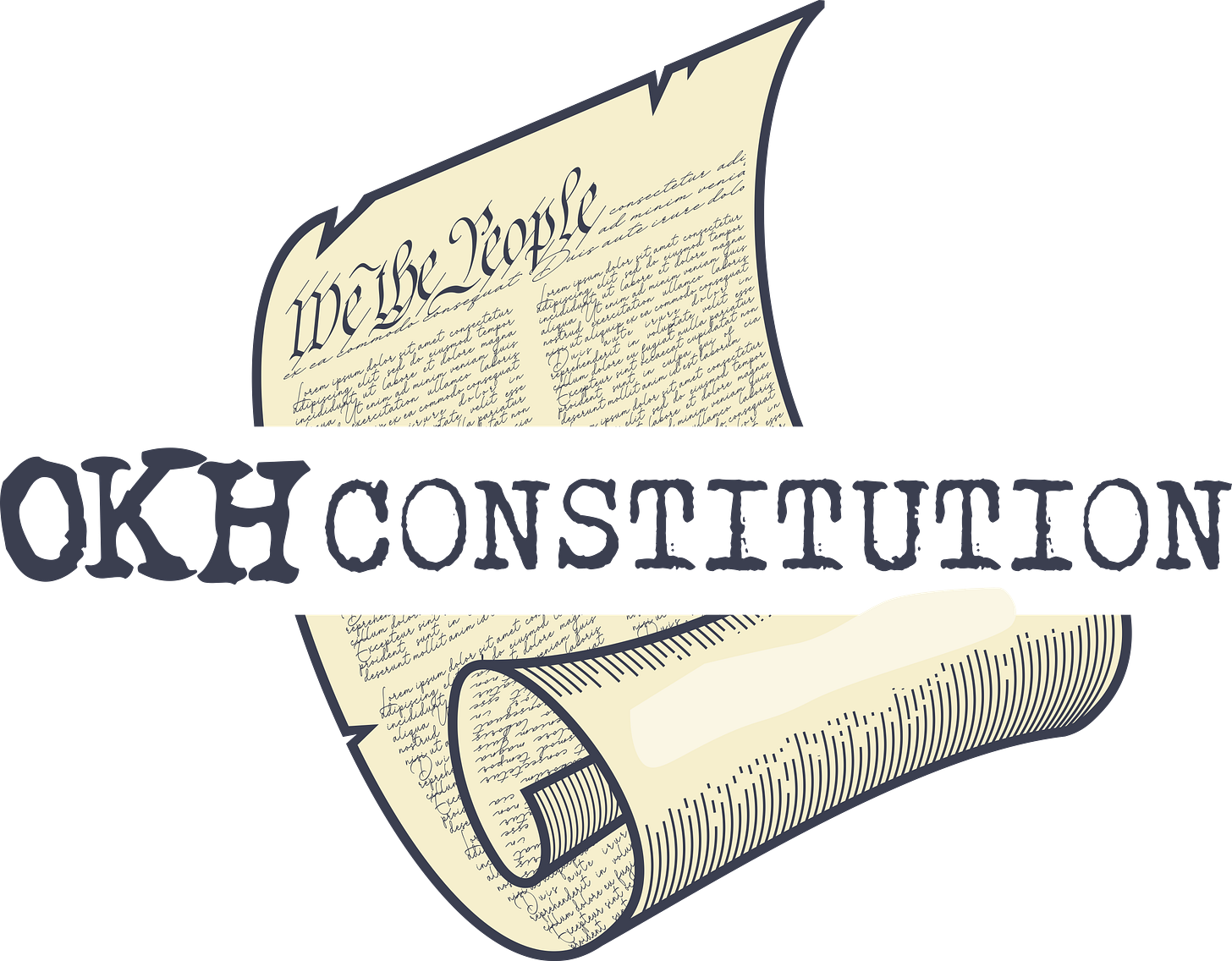Taxing
It's Patriots versus the rest of us in this next round of amendment rankings.
The argument over taxes is something that has always intrigued me. I mean, who likes taxes? Have you ever sat around with friends and family and proclaimed your love of taxes and how you would like more?
There is no national holiday devoted to taxes. Do you ever brag about how much you paid in taxes? Of course not, because that would be weird.
We have two major political parties in this country, partly defined by how they view taxes. One party proclaims that people and corporations with wealth do not pay their share of taxes, while the opposing party’s position is that everyone is taxed too much and, therefore, the wealthiest people should pay lower taxes. Corporations are also people with feelings and two-car garages, and they, too, shouldn’t have to carry the burden of paying taxes.
The argument over taxes is as old as the country has been around, yet we couldn’t exist without them.
The Framers understood the importance of Congress being able to collect taxes, and they spelled it out in Article I of the Constitution. The premise is simple: we need to collectively pay for things like the military and other stuff that I can’t think of right now.
The Articles of Confederation didn’t work out too well because we needed unanimous consent to do anything. It is pretty impossible when thirteen states all think they are awesome.
For a long time, the United States collected taxes through tariffs - taxes paid on goods entering or leaving the country. But then the Civil War thing happened, and we began to tax the incomes of individuals to pay for the effort to keep the Union together.
Then we repealed it.
Then we tried to implement the income tax again.
Then the Supreme Court got involved again, bringing us to the Sixteenth Amendment, which cemented our argument over how much we get taxed.
Let’s dive in.
17: Amendment XVI
Its purpose: Congress could tax incomes regardless of whatever anybody else thought.
Year proposed: 1909
Year Ratified: 1913
The Good:
At the beginning of the 20th century, the United States became an industrial economic superpower. People were moving to urban areas, and we were less and less reliant on agriculture to produce our wealth.
As a result of this shift, wealth was concentrated within a smaller portion of our expanding population. After rich people successfully killed off the income tax process after the Civil War, we operated under what is called a regressive consumption tax, which of course, fell to people who earned wages and those who continued to farm to carry the burden of funding the government.
In 1892, the People’s Party called for a graduated income tax, but since you have probably never heard of the People’s Party, the Democratic Party took the issue on its own.
The opposition called this idea socialism; taxing people who made money and therefore were held to a higher standard shouldn’t be taxed to support those who weren’t smart enough to be born into wealth. To strengthen their arguments, they called these people Patriots.
You can’t be against Patriots!
However, in 1894 Congress, dominated by the Democrats, passed the Wilson-Gorman Tariff Act, which allowed Congress to collect a 2% tax on incomes over $4,000. It was signed into law by Democratic president Stephen Grover Cleveland.
So the good here is that ordinary people beat the rich. We went from a regressive tax to a simple flat tax. We also began taxing the crap out of corporations, gifts, and inheritances.
The Bad:
Yet again, we see the bad section of this ranking filled with another Supreme Court ruling that set in motion a change to override what many consider an activist court.
After Wilson-Gorman was passed, New York-based bank Farmers’ Loan & Trust Company (you would know them today as Citibank) told its shareholders that it would pay the tax and, on top of that, provide the names of everyone they worked for who would be liable also to pay the tax.
Citibank – helping you pay your share of taxes.
Charles Pollack from Massachusetts, presumably a fan of the Patriots, sued Farmers’ Loan & Trust to prevent them from promoting socialism.
He lost his case in a lower court, but in 1895 the Supreme Court swooped in and decided in a 5-4 vote that Wilson-Gorman was unconstitutional.
The country reacted to this by flipping out.
The Ugly:
The Democrats were determined to be the party that taxes you, and they tried vehemently to pass laws that circumvented the Pollack vs. Farmer’s Loan & Trust.
Fortunately, flipping out spread throughout the country, and the movement to overturn Pollack grew so much that by the early 1900s, even Republicans got on board. President William Taft backed the income tax idea when he ran against William Jennings Bryan, who had championed the cause for years.
But holdouts remained, and oh boy, did they have influence. The Senate Finance Committee is an excellent gig to land if you are ever elected. If you have the opportunity to chair it, I suggest you jump on it because you will be instantly popular with people and corporations who are fond of money, where it goes, and who controls it.
You’d become an instant Patriot!
New York Senator Nelson Aldrich was the chairman of the Senate Finance Committee when the income tax amendment made headway. Although Aldrich has been described as powerful, he was never powerful enough to overcome the power of the people.
He, too, would eventually succumb to the income tax idea, but you have to give him his due because he won out at the end of the day.
Nelson is the American dream. The Rhode Island native rose to political power, and because he supported the people in big business and the wealthy, they welcomed him with open arms. The guy’s name has the word “rich” in it, making it easier for him to join the Patriots!
He was so entrenched with the rich that his daughter married John Rockefeller Jr., the son of John Rockefeller Sr., considered the wealthiest man ever, who spent most of his life in Cleveland for some reason.
Anyway, Aldrich’s grandson was named after him, Nelson Rockefeller, who served as vice president under Gerald Ford.
Why is this ugly? I don’t know; it feels ugly.
Who proposed it?
Texas senator Joseph Bailey. Bailey would resign his seat when the amendment passed because he was one corrupt son-a-gun. Sadly he died a few years later in a courtroom after delivering an argument, something I have never seen on a Law & Order episode.
The Sixteenth Amendment bill was passed on July 12, 1909, by the 61st Congress. Hilariously, Alabama was the first state to ratify it.
That’s how popular taxing people was back then.
Why did I rank it here?
My day job is in fundraising consulting, specializing in planned giving, which focuses on taxes. For the past three years, I have learned so much about progressive tax systems and the ways around them. It’s been quite a learning curve.
I also pay an enormous federal tax. The thanks I get for this patriotic duty is not having any representation because I live in Washington, DC.
What does this have to do with ranking the Sixteenth Amendment at #17? Nothing. I was just writing about myself.
Okay, let me know what you think of my ranking.
Anonymous and I continue our vacation tour beginning tomorrow. We head to the beaches of Delaware, which for some reason, most people don’t realize have beaches.
Years ago, I had a client based in North Carolina who was confused when I told him where I was going, which led to an explanation that the Atlantic Ocean did, in fact, run up and down the east coast. It has been referred to as Yankee Beach ever since to help clarify things.
I’ll be back with Maundy Monday Newsletter. No promises about what I can produce the rest of the week because I will also be working with a few clients who may or may not understand geography.
Thanks for your continued support of Okay History. I love the summer. Whatever you may be up to, I hope it’s not taxing.
Okay,
Chris




